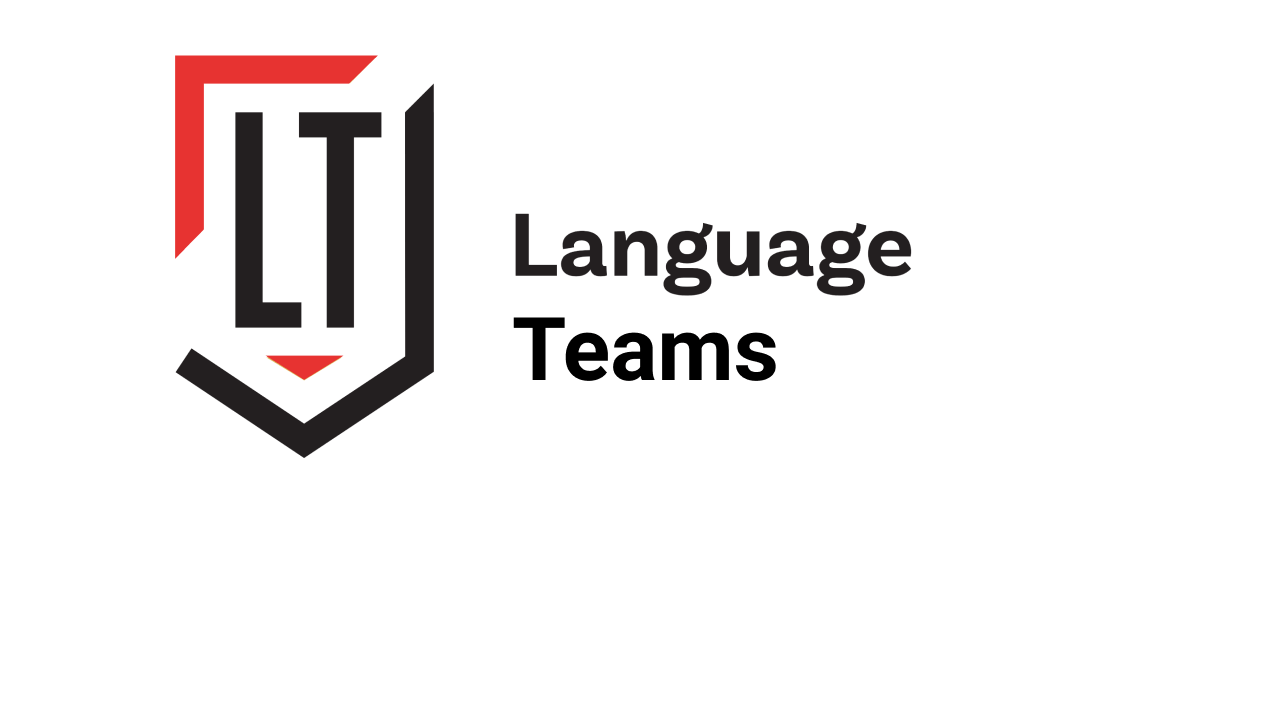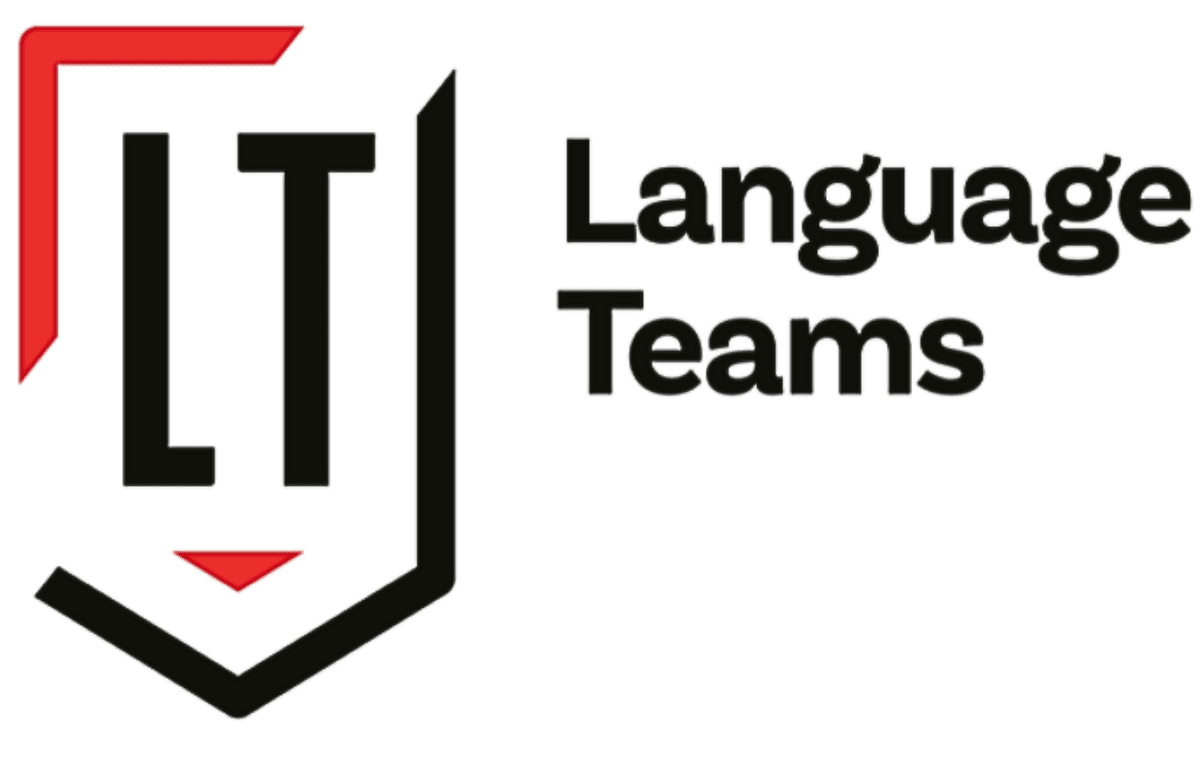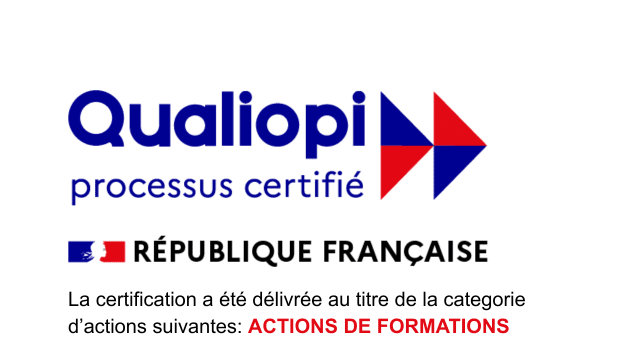Achieve fluent, independent command of the French language. During this course, you will progress from level B1 to B2 and learn to understand complex texts, formulate nuanced opinions, communicate professionally and write clearly structured texts. The course follows the Common European Framework of Reference for Languages (CEFR) and consists of modular teaching blocks of 20 hours, built around advanced speaking, listening, reading and writing skills.
Parcours B1 - B2
5 modules of 20 hours each
Communicative approach (CEFR)
What does level B2 mean?
Level B2 stands for independent language proficiency. You understand complex texts, can actively participate in conversations and express your opinion in a well-founded manner. You communicate fluently and naturally about personal, social and professional topics.
You are no longer dependent on simple sentences, but can use structure, nuance and argumentation in your language.
Module B2 (5 x 20 hours)
Modules at level B2
The B2 level course consists of five modular blocks, each lasting 20 hours. Each module builds on your B1 level skills step by step and takes you to a more fluent, nuanced and professional command of the language.
The modules can be taken separately or as a complete learning programme.
MODULE 1 — Understanding & speaking at an advanced level (20 hours)
You will strengthen your oral skills and learn to have longer, more complex conversations.
What you will learn:
Expected results
You will communicate more fluently and spontaneously, understand conversations between native speakers and be able to join in discussions on a wide range of topics.
MODULE 2 — Current affairs, society & critical thinking (20 hours)
Focus
You will learn to better understand complex topics and discuss them in a nuanced way.
What you will learn
- Analyse news items, reports and podcasts
- Discuss social issues (work, environment, politics, culture)
- Express a point of view with relevant arguments
- Explain causes and consequences
- Critically reflect on sources of information
Expected results
You will understand complex content and be able to communicate about it in a coherent, clear and critical manner.
MODULE 3 — Professional communication & work-related French (20 hours)
Focus
Language use in professional contexts.
What you will learn
- Writing professional emails and short reports
- Participating in meetings, telephone calls and presentations
- Giving and following instructions
- Formulating feedback in a constructive manner
- Using formal and professional language registers.
Expected results
You will be able to function independently in professional situations that require clear, correct and polite communication.
MODULE 4 — Writing, structuring & text production (20 hours)
Focus
You will improve your writing skills and learn how to structure longer texts.
What you will learn
- How to construct argumentative texts
- How to summarise articles or videos
- How to structure clear paragraphs (introduction–main body–conclusion)
- How to use connecting words and logical connections
- How to adapt your style to your audience
Expected results
You will write clear, organised and convincing texts for study, work or formal communication.
MODULE 5 — DELF B2 preparation & oral proficiency (20 hours)
Focus
Preparation for official certification + oral refinement.
What you will learn
- Practise with official DELF formats (listening, reading, writing, speaking)
- Argue, debate and defend points of view
- Answer complex questions with a clear structure
- Correct common pitfalls (register, grammar, precision)
Expected results
You will be ready for the official DELF B2 exam and will be able to handle complex oral interactions with confidence.
What can I do at level B2?
When you reach level B2, you can express yourself fluently, spontaneously and clearly in a wide range of situations. You understand complex content, can argue, debate and communicate professionally with nuance and confidence. It is the level at which you truly achieve autonomy in work, study and social contexts.
Talking and interacting
You can:
- participate in complex conversations and discussions
- formulate your opinion in a nuanced way and substantiate it with arguments
- analyse and respond to the views of others
- participate actively in meetings (summarise, respond, clarify)
- adapt your register to the situation (formal, neutral, informal)
- speak fluently and spontaneously, even when you are still searching for words
Listen
You will be able to:
- understand news broadcasts, podcasts and interviews, including nuances
- follow conversations between native speakers, including implicit information
- understand instructions and professional explanations without repetition
- understand complex topics (society, work, current affairs, culture)
Read
You will be able to:
- understand articles from newspapers, magazines or blogs, including arguments
- read professional texts (reports, emails, notes)
- process complex instructions, procedures and documents
- distinguish main ideas + details, recognise logical connections
- read critically and identify points of view
Write
You will be able to:
- write structured, argumentative texts
- draft clear professional communications (reports, emails, summaries)
- explain complex ideas with a logical structure
- add nuance using connecting words and precise vocabulary
- defend a point of view in writing
- adapt your style to the target audience (formal/informal)
Objectives of the B2 course
Main objective of this level
During this level, you will refine your language skills, significantly expand your vocabulary and learn to analyse, understand and produce complex messages. You will develop the skills to nuance, argue, summarise, respond to longer discourses and actively participate in conversations in social, professional and academic contexts. The nine competency blocks below describe in concrete terms what you will learn at level B2 and how you will evolve towards becoming an independent and fluent language user.
You will learn to speak fluently, spontaneously and with nuance in everyday, professional and social situations.
You will be able to:
- participate in a conversation and formulate longer contributions
- clearly express your point of view and defend it with arguments
- respond appropriately to opinions, nuances and implicit messages
- switch smoothly between formal and informal registers
- keep a conversation going, ask for clarification and take the initiative
You understand the main points and many details of spoken French at a normal pace.
You can:
- follow longer conversations between native speakers
- analyse radio and video clips (news, documentaries, interviews)
- recognise nuance, irony and implicit messages
- understand explanations and instructions in professional contexts
- process verbal information and summarise it afterwards
You can read, structure and interpret complex texts.
You understand:
- articles from the press and media with an abstract or social theme
- reports, policy documents and business communications
- arguments, opinion pieces and academic excerpts
- instructions, procedures and professional documents
- You can also select relevant information and critically analyse a text.
You will learn to write a variety of texts clearly, correctly and in a structured manner.
You will be able to:
- write argumentative texts (opinions, viewpoints, reflections)
- write professional emails, reports and accounts
- structure longer texts more coherently with an introduction, argumentation and conclusion
- rephrase or summarise complex information
- adapt your writing style to the context (formal, neutral, informal)
You will deepen your knowledge of advanced grammatical structures.
You will work on, among other things:
- extensive verb tenses: passé simple (intro), subjonctif présent, conditionnel, discours rapporté
- complex connecting structures for argumentation
- hypothesis constructions (‘si’ sentences)
- precise sentence structures for precise nuances of meaning
- You will apply these correctly in spontaneous speaking and writing situations.
You will build up a broad, diversified vocabulary.
You will learn:
- to discuss abstract and professional topics (economics, society, current affairs)
- to use synonyms and nuances to express yourself more precisely
- to recognise and use idiomatic expressions
- to apply differences in register (formal/informal)
- to express nuanced opinions, emotions and intentions
You will refine your pronunciation so that you come across as clear, fluent and professional.
You will learn:
- to recognise and apply intonation patterns to enhance nuance and expression
- to use rhythm, melody and sentence stress correctly for clarity
- to pronounce difficult sounds and combinations accurately
- to correct B1-level pronunciation errors and replace them with more natural patterns
- to adapt your spoken language to the context (e.g. speaking more formally in conversations at work)
- using prosody to argue convincingly
You will develop an understanding of cultural nuances that are essential for effective communication in French-speaking contexts.
You will learn:
- to recognise social codes, forms of politeness and implicit expectations
- to better interpret cultural references, humour and indirect communication
- to express yourself appropriately in professional and social situations
- to deal with diversity in language registers and communication styles
- to adapt your behaviour and communication to the context (business meeting vs. informal conversation)
You will develop techniques to make faster, more targeted and more independent progress.
You will learn:
- strategies for understanding complex messages (global listening, scanning, analysing)
- compensate for difficult words through paraphrasing, description or reformulation
- evaluate and follow up on your own strengths and areas for improvement
- learn and maintain vocabulary efficiently
- use notes, diagrams and thought structures for longer texts or conversations
- use digital tools (dictionaries, references, apps) to continue growing independently
Who is this training course aimed at?
This course is designed for students who wish to refine their communication skills and achieve greater nuance, precision and confidence in both personal and professional contexts. Level B2 is aimed at students who already have a solid foundation and now wish to progress to become advanced, independent users of French.
This training course is ideal for:
- adults who have successfully completed level B1
- professionals who need more fluent, convincing communication
- employees in international or French-speaking work environments
- students or newcomers who want to strengthen their language skills for studies, work or integration
- anyone who wants to learn to understand and participate in complex conversations
Admission requirements
Not required:
Requirements:
When is this training right for you?
This programme is ideal for you if you want to:
communicate with more nuance, precision, and confidence;
better understand professional situations and respond appropriately;
read, analyse, and interpret more complex texts;
engage in conversations where you can argue, compare, summarise, and react;
adapt your language to formal, informal, and neutral contexts;
prepare for higher levels such as C1 and for official exams such as the DELF B2.
Contents of this training course
The French course at level B2 consists of five modules of 20 hours each. Each module forms a complete learning block with clear objectives, communication exercises, authentic material and continuous assessment. You will work on both your oral and written skills, deepen your grammatical knowledge and build a broader, more nuanced vocabulary. The approach remains communicative, interactive and action-oriented — fully aligned with the CEFR standards and concrete situations from everyday and professional life.
What you will learn
- understand longer conversations between native speakers
- manage a variety of communication situations (social, work, study)
- respond spontaneously, clarify, rephrase
- give nuanced opinions and construct short arguments
- understand complex vocabulary in context (media, interviews, podcasts)
- strengthen conversation techniques: interruptions, feedback, signal words
Expected results
After completing this module, you will be able to participate fluently in conversations, understand the essence and details of longer oral messages, and express your opinion in an independent and credible manner.
What you will learn
- Analysing news articles, reports and debates
- Recognising main ideas and implicit information in the media
- Assessing arguments and responding to them
- Discussing topics such as society, work, culture, the environment and technology
- Developing and defending nuanced points of view
Expected results
You will be able to understand, summarise and discuss current topics. You will develop a critical eye for information and be able to articulate complex ideas clearly.
What you will learn
- Conducting work-related conversations (meetings, project updates, feedback)
- Writing professional emails at B2 level
- Using functional language: making proposals, comparing options, explaining decisions
- Producing reports, analyses and short summaries
- Applying professional language register (formal vs. neutral)
Expected results
You will be able to communicate professionally, use appropriate language and independently perform tasks that require advanced language skills.
What you will learn
- writing longer texts (reports, summaries, advice, opinions)
- improving structure and coherence (signal words, connections, paragraphs)
- constructing and substantiating clear arguments
- adapting style and register to the target audience
- revision techniques and self-correction
Expected results
You will be able to produce clear, coherent and well-structured texts, with correct argumentation and an appropriate language level.
What you will learn
- Typical DELF B2 oral tasks
- Monologues, defences, conversational interactions
- Strategies for stress management, timing and argumentation
- Written exam components: synthesis, writing, analysis
- Avoiding pitfalls and building on strengths
Expected results
You will be optimally prepared for the DELF B2 exam and will have mastered both the oral and written formats at this level.
Each module includes:
- interactive group activities
- a mix of theory, practice, role-playing and analysis
- authentic material (articles, audio, video, professional documents)
- regular assessments to measure your progress
- personal, direct feedback from the teacher
The entire course is designed to naturally strengthen your autonomy, precision and confidence in French.
Our methodology
Our courses follow a communicative and action-oriented approach, in line with the guidelines of the CECR.
Communicative interaction
Oral expression is at the heart of learning.
Realistic situations and dialogues.
Functional use of language (rather than theoretical).
Small groups (3 to 8 participants)
More speaking time
Immediate feedback
Individual support
Action-based learning
Role-playing games and micro-tasks
Missions in a real-world context
Emphasis on what learners can Immediately put into practice
Authentic materials
Videos, audio, advertisements, documents
Modern sources → actual language
Skills integration
Listening, speaking, reading and writing combined
Natural language progression
One-to-one lessons
Maximum speaking time
Flexible scheduling
Assessment and monitoring
Our courses follow a communicative and action-oriented approach, in line with the guidelines of the CECR.
Starting level and needs analysis
Self-assessment of oral proficiency
Needs analysis
Placement in the appropriate level
Progress and adjustments
Formative assessments (4 skills)
Teacher observation
Content adapted to level and pace
Tasks and exercises in a realistic context
Final assessment and certification
Summative assessment according to the CEFR
Certificate of competence
Report and satisfaction survey
Practical information
- Organised into three 20-hour modules
- This modular programme is made up of three independent 20-hour modules.
- Learners may enrol module by module (each unit of 20 hours) to progress at their own pace, or register for the full programme.
- Intensive schedule: usually two weeks per module (2 hours per day, Monday to Friday).
- Evening schedule: usually five weeks per module (4 hours per week, 2 evenings)
- We offer individual lessons as well as small-group classes (3 to 8 participants).
- Personalised support and plenty of speaking practice.
- Available online, on-site, or hybrid
- For online lessons, a laptop/smartphone + internet, microphone, and camera are required
- authentic texts, audio and video
- grammar and vocabulary sheets
- interactive tools such as Quizlet, Padlet and Kahoot
- all materials are shared digitally via Digiforma or Drive
- laptop or notebook
- headphones for online lessons
- motivation & active participation
- New modules start several times a year.
- For start dates, please refer to the registration form or contact us.
We strive to make our courses accessible to as many students as possible. Do you need specific support or adjustments during classes (online or on-site)? Please contact our accessibility officer:
Accessibility contact person:
Ingrid Bouillé — ingrid@languageteams.com
Together, we will look at what adjustments are possible, such as:
- extra time or support during tasks
- clarified instructions
- alternative materials
- help with digital tools
- adapted teaching methods for specific needs
People with disabilities or learning difficulties are encouraged to contact us in advance so that we can provide an optimal learning experience.
Quality & Satisfaction
These results are based on feedback from 132 out of 362 students, we remain committed to boosting both approval and participation rates.



